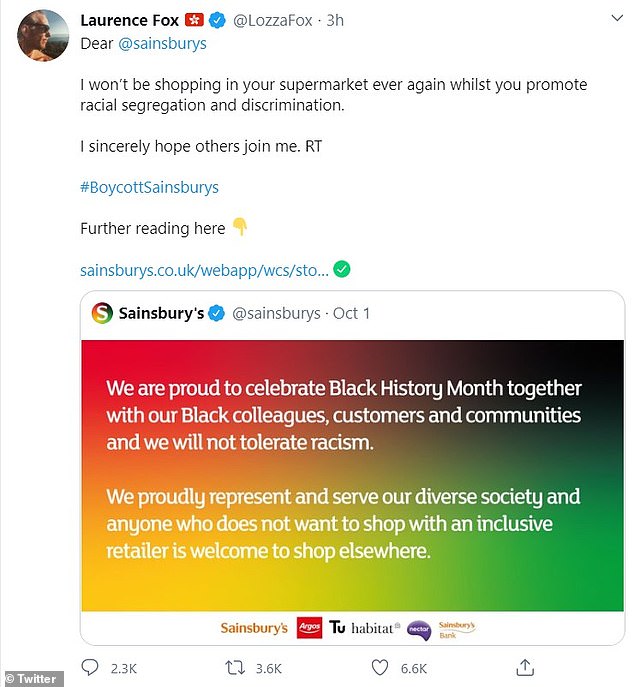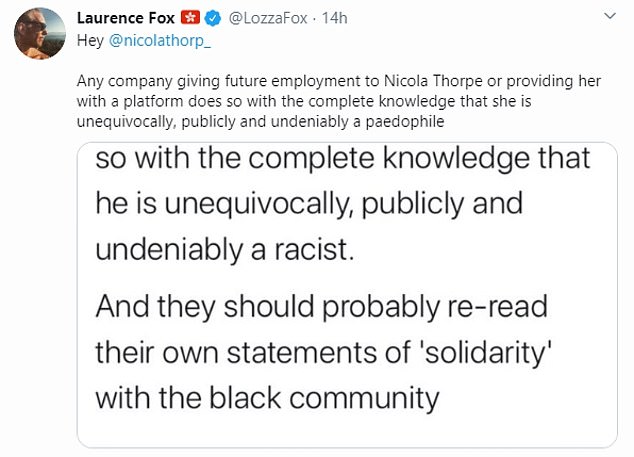Laurence Fox has lost his High Court libel battle with two people he referred to as “paedophiles” during a heated online exchange about Black History Month.
The actor turned politician was sued by ex-Stonewall trustee, Simon Blake, and the former RuPaul’s Drag Race contestant, Crystal – real name Colin Seymour – after making the claim during a row about a decision by Sainsbury’s to celebrate Black History Month.
The former GB News host and now leader of the Reclaim Party counter-sued the pair, along with former Coronation Street actress Nicola Thorp, over tweets which subsequently accused him of racism. In a ruling on Monday, High Court judge Mrs Justice Collins Rice ruled in favour of Blake and Seymour and dismissed Fox’s arguments.
“Mr Fox’s labelling of Mr Blake and Mr Seymour as paedophiles was, on the evidence, probabilities and facts of this case, seriously harmful, defamatory and baseless,” the judge said.
The row began back in October 2020 when Sainsbury’s announced it was an “inclusive retailer”, would be supporting Black History Month, and that anyone who has a problem with our “diverse society” is “welcome to shop elsewhere”. Fox suggested that this amounted to promoting “racial segregation and discrimination”, and urged his 200,000+ Twitter followers to boycott the supermarket.

At which point Blake, Seymour, and Thorp all piled in to accuse Fox of being a racist.
Perhaps the most stinging accusation came from Thorp. “Any company giving future employment to Laurence Fox, or providing him with a platform, does so with the complete knowledge that he is unequivocally, publicly and undeniably a racist,” she said.
“Pretty rich coming from a paedophile,” Fox shot back in response to Blake’s tweet about his ‘racism’. “Says the paedophile,” he responded to Seymour’s tweet.

Then there was Fox’s response to Thorpe’s tweet, which very deliberately mimicked her exact wording: “Any company giving future employment to Nicola Thorpe [sic] or providing her with a platform does so with the complete knowledge that she is unequivocally, publicly and undeniably a paedophile,” it read.

Writing for Spiked, Brendan O’Neill thinks the judge got this one disastrously wrong. It doesn’t matter what you think about Fox, he says: if you care about freedom of expression, the ruling in this case should horrify you. Fox’s mimicry of the exact wording Ms Thorp had used to damn him as a racist “made it crystal clear what he was up to here: he was turning their words back on them,” he says.
Brendan continues:
He was returning rude fire. He was saying, ‘If you can falsely accuse me of being a racist, I can falsely accuse you of being a paedophile’.
It was a rhetorical game. A verbal stunt. A drawing of linguistic daggers. It was not a serious allegation of sexual malfeasance – it was a performative upping of the mud-slinging stakes.
The intention was not to make people believe that these three individuals are paedophiles – Fox and everybody else knows that they are not – but to make it clear that he is not a racist. And he sought to achieve this through essentially saying: ‘I am about as racist as you are paedophilic.’ Which is to say, ‘Not at all’.
And yet, the High Court has found against Fox. Taking literalism to dizzying new heights, the judge criticised him for failing to show that his allegations were true – yes, because they weren’t! I know judges are out of touch, but surely they’ve heard of rhetoric and humour. The saying of things not because they’re true but because they are silly or surreal.
Fox’s claims were ‘baseless’, the judge said. Again, we know. That was the point. ‘Calling me a racist is as baseless as someone calling you a paedophile’ – that was his case boiled down. The baselessness of his allegations were baked into the very allegations themselves.
‘The law affords few defences to defamation of this sort’, decreed the High Court. And that’s the problem. That the defence of rhetoric is not permissible under our libel laws is dreadful. Hyperbole is key to the to and fro of public discussion. As is mockery, scorn, piss-taking.
The literalism of our libel system is an enemy of free speech. What will happen now if someone calls a New Labour apparatchik a ‘murderer’ for their role in the Iraq War? Should we drag them to court, given New Labour individuals never actually murdered anyone?
Colour and argument and linguistic embellishment also help us get to the heart of a matter. We should take inspiration from the US, where the First Amendment permits ‘extravagant exaggeration employed for rhetorical effect’. Such ‘rhetorical hyperbole’ and ‘imaginative expression’ has ‘added much to the discourse of our nation’, the Supreme Court once ruled.
Until the people of Britain can make a defence of ‘rhetorical hyperbole’ in court, we will lag in liberty behind our American cousins.”
Worth reading in full.






